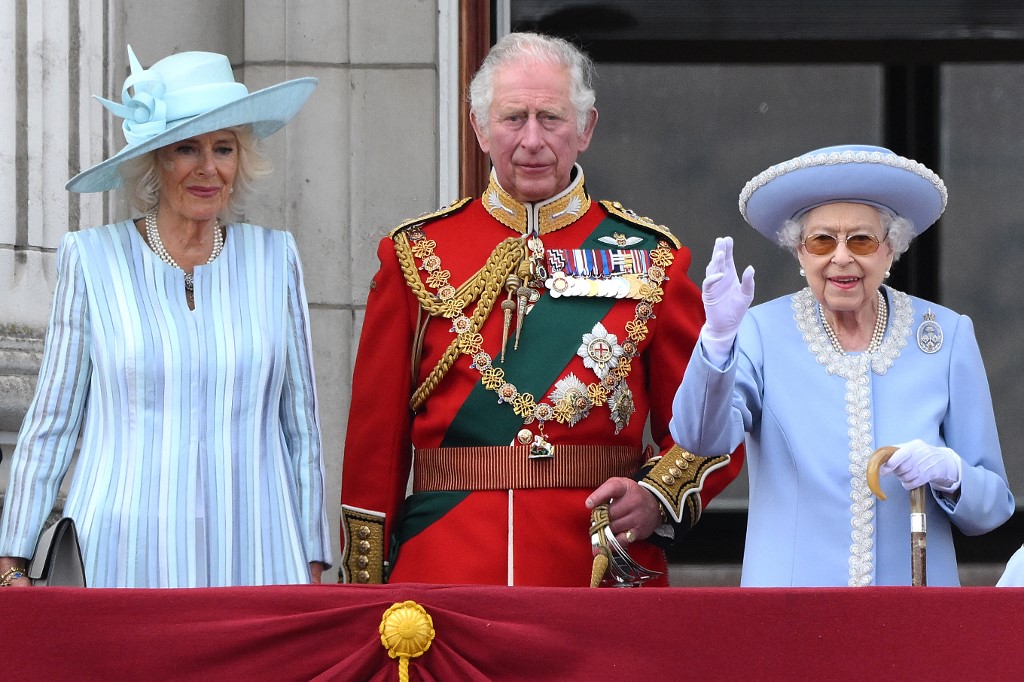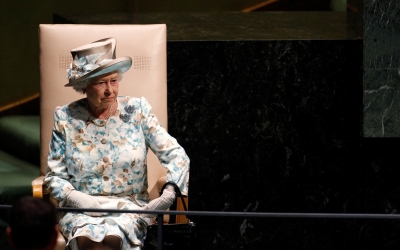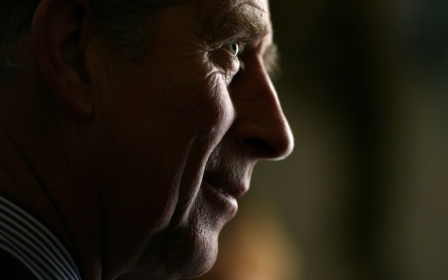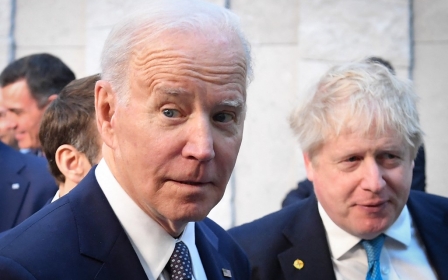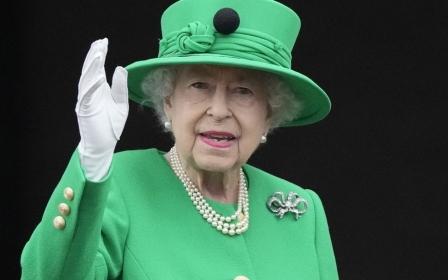Queen Elizabeth II: A quiet force for national stability
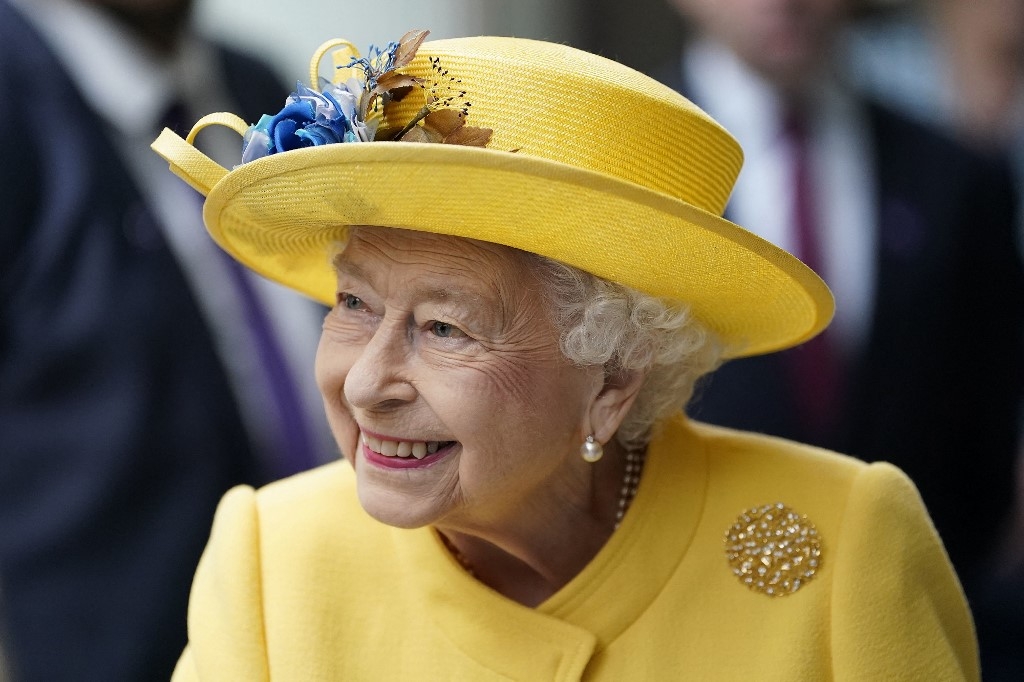
When Elizabeth II became queen at the age of 25 on 6 February 1952, Winston Churchill was Britain's prime minister, Stalin ran Russia, and King Farouk was monarch of Egypt. In Britain, there were no motorways and no internet, and most people used radio rather than TV.
Since that time, the queen has become synonymous with Britain: head of state; head of the Anglican Church; head of the judiciary; head of the armed forces; head of the Commonwealth; and ultimate fount of honour in the British state.
She knew almost every world statesman of any consequence for three-quarters of a century - and their families, too, always remembering their names.
Queen Elizabeth II was pitch perfect, winning the hearts of millions of Irish men and women who had every reason to hate the British state
She met every US president, from Harry Truman to Joe Biden, with the exception of Lyndon Johnson. She is synonymous with modern British history: the Suez crisis; the end of empire; the 1970s economic collapse; the rise and fall of Margaret Thatcher; the Iraq War. She was there at the start and end of the troubles in Northern Ireland; at the start and end of the United Kingdom's half-century membership of the European Union.
I believe the greatest moment of her magnificent reign was her remarkable act of reconciliation when in May 2011 she made the first British state visit to Ireland since its independence, dressed in bright republican green. She visited Croke Park, where British forces had massacred 14 Irishmen in 1920.
New MEE newsletter: Jerusalem Dispatch
Sign up to get the latest insights and analysis on Israel-Palestine, alongside Turkey Unpacked and other MEE newsletters
It was a visit that could so easily have gone terribly wrong. But Queen Elizabeth II was pitch perfect, winning the hearts of millions of Irish men and women who had every reason to hate the British state.
Psychic blow
Her reign was marked by private and public tragedy, including the murder of her cousin, Lord Mountbatten, and the death in a car crash of her daughter-in-law, Princess Diana. Throughout it all, her life was dedicated to public service. She promised in her solemn coronation oath on 2 June 1953 to "govern the peoples of the United Kingdom of Great Britain and Northern Ireland, Canada, Australia, New Zealand, the Union of South Africa, Pakistan, and Ceylon, and of [her] possessions and the other territories to any of them belonging or pertaining, according to their respective laws and customs".
She was the longest-serving monarch in our national history. Indeed, only one other monarch in the world has ever lasted longer: King Louis XIV of France, who reigned for 72 years by the time he died in 1715.
You would have to be more than 70 years old to have been a subject of any other British monarch. It is very hard to believe the queen is dead. The news sends a shattering psychic blow across the United Kingdom.
The woman who has been a symbol of national unity for seven decades has gone, at a time when her presence has never been more urgently needed. The consequences of her death at the age of 96 will be immense.
The events of the next few days have long been meticulously planned. The day after her death, the Accession Council, including the most senior figures in government, will meet at St James's Palace to proclaim King Charles the new sovereign. The proclamation will also be read, according to tradition, at the Royal Exchange in London.
Britain will grind to a standstill. All parliamentary business will be suspended for 10 days, apart from a session where MPs meet to pay tribute to the late queen. In the coming days, King Charles III will tour the United Kingdom, starting with a service at St Giles Cathedral in Edinburgh before moving on to Northern Ireland and then Wales.
The queen will lie in state for three days. Throngs of her subjects will file past her coffin, creating queues across Westminster Bridge and along the river. A state funeral will be held 10 days after her death, on what will be designated a day of national mourning. So many heads of state and other foreign leaders are expected to attend that there are fears over London's capacity to handle the influx.
Long-term consequences
Yet while the immediate future is set out with precision military planning, the longer-term consequences of the queen's death are much harder to judge.
There has long been a republican tradition in the UK, but the queen was held in such huge regard that all attempts to challenge the legitimacy of the monarchy - an institution that dates back to the Middle Ages, and which seems to many to be profoundly anachronistic in the 21st century - have failed.
She was a wise and good woman. There is a wealth of private testimony to her humanity and wisdom. One among countless examples came from the mouth of David Nott, the trauma surgeon who saved many lives in Aleppo at the height of the Syrian war.
In a book excerpt published in the Guardian, Nott recalled how he found himself unable to speak after he was invited to meet the queen following his return from a traumatic trip to Syria: "My bottom lip started to go, and I wanted to burst into tears, but I held myself together. She looked at me quizzically and touched my hand. She then had a quiet word with one of the courtiers, who pointed to a silver box in front of her, which was full of biscuits. 'These are for the dogs,' she said, breaking one of the biscuits in two and giving me half. Together, we fed the corgis. 'There,' the queen said. 'That’s so much better than talking, isn't it?'"
He explained in another interview: "She did it because she knew that I was so seriously traumatised. You know, the humanity of what she was doing was unbelievable."
The nation's future
Once a decent interval for mourning has elapsed, republicans are bound to challenge what many see as the feudal structure of the British state.
King Charles III, who assumes the throne at the age of 73, is a decent and well-meaning man, widely admired for his long-standing and genuine concern for the environment, architecture, social inclusion and other causes. But, perhaps inevitably, he has made errors of judgement during his long wait to become king.
In recent months, there have been a series of embarrassing revelations about the handling of his charity's finances, including that he took a suitcase of a million euros in cash from a Qatari politician. He has allowed his personal views to intrude into politics in a way his mother never did. As head of state, she was above party divisions, never revealing partisan preferences - though a former courtier once speculated to me that of all her prime ministers, she found Labour's Jim Callaghan to be the most congenial, and the Tories' Boris Johnson to be the least.
The consequences of her death at a ripe old age, and after a magnificent life, stretch way beyond the future of the British monarchy
The tragedy of his first wife's death still haunts Charles. While most view him as a well-meaning man, he will struggle at first to gain the authority of his late mother.
But the consequences of her death at a ripe old age, and after a magnificent life, stretch way beyond the future of the British monarchy. The queen died at a time of national difficulty, with the UK facing runaway inflation and an economic crisis. The constitutional settlement that she came to embody after the collapse of the British Empire in the immediate postwar period is under threat. Brexit has led to a resurgence of Scottish nationalist sentiment, while attempts made by successive Conservative governments to revoke the Northern Ireland Protocol threaten both the Good Friday Agreement and ultimately the Union, which the queen embodied.
Queen Elizabeth II might have stood above politics, but her silent presence as head of state was a powerful force for national stability.
But such thoughts are for the future. In the days and weeks ahead, Britain will pause to mourn the passing of a great monarch who never gave less than total dedication to the nation she loved and served.
The views expressed in this article belong to the author and do not necessarily reflect the editorial policy of Middle East Eye.
Middle East Eye delivers independent and unrivalled coverage and analysis of the Middle East, North Africa and beyond. To learn more about republishing this content and the associated fees, please fill out this form. More about MEE can be found here.



